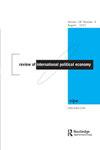调查内战和外国直接投资的“奇怪”案件:来自苏丹的证据
IF 3.7
1区 经济学
Q1 ECONOMICS
引用次数: 1
摘要
摘要通常认为内战严重抑制了外国直接投资(FDI)的流入。然而,证据是不一致的,并不支持内战与外国直接投资之间假定的负相关关系。一些研究表明,外国直接投资进入内部武装冲突的国家有增无减;其他研究表明,内战经济体在冲突期间外国直接投资出现强劲增长。在对战争的自由主义解释的基础上,这些学术发现这些趋势令人惊讶、反直觉和奇怪,认为外国直接投资进入冲突地区,尽管暴力。相反,批判的观点可以提供见解,承认暴力可以促进经济进程,如外国直接投资,创造一种有利于外国直接投资流入的特殊形式的安全和稳定。本文考察了第二次苏丹内战(1983-2005),这个国家在冲突阶段显示出外国直接投资的强劲增长。有人认为,政府武装部队和亲政府民兵(同情石油行业主要投资者利益的团体)犯下的特定类型的暴力行为,在2000年代促进了对苏丹石油部门的外国直接投资,损害了受暴力影响的大部分平民的利益。本文章由计算机程序翻译,如有差异,请以英文原文为准。
Investigating the ‘curious’ case of civil war and foreign direct investment: evidence from Sudan
Abstract It is typically argued that civil war acutely inhibits inward flows of foreign direct investment (FDI). However, the evidence is inconsistent and does not support the assumed negative relationship between civil war and FDI. Some studies suggest that FDI enters countries with internal armed conflicts unabated; others show that civil war economies exhibit strong increases in FDI during conflict. Underpinned by a liberal interpretation of war, this scholarship finds these trends to be surprising, counter-intuitive and curious, arguing that FDI enters conflict zones in spite of violence. In contrast, critical perspectives can provide insights by acknowledging that violence can facilitate economic processes such as FDI, creating a particular form of security and stability that can be conducive to FDI inflows. This article examines the Second Sudanese Civil War (1983-2005), a country which exhibited strong increases in FDI during phases of the conflict. It is argued that particular types of violence perpetrated by the government’s armed forces and pro-government militias – groups which were sympathetic to the interests of key investors in the oil industry – facilitated FDI in Sudan’s oil sector during the 2000s to the detriment of large sections of the civilian population affected by the violence.
求助全文
通过发布文献求助,成功后即可免费获取论文全文。
去求助
来源期刊
CiteScore
9.20
自引率
9.30%
发文量
47
期刊介绍:
The Review of Political Economy is a peer-reviewed journal welcoming constructive and critical contributions in all areas of political economy, including the Austrian, Behavioral Economics, Feminist Economics, Institutionalist, Marxian, Post Keynesian, and Sraffian traditions. The Review publishes both theoretical and empirical research, and is also open to submissions in methodology, economic history and the history of economic thought that cast light on issues of contemporary relevance in political economy. Comments on articles published in the Review are encouraged.

 求助内容:
求助内容: 应助结果提醒方式:
应助结果提醒方式:


